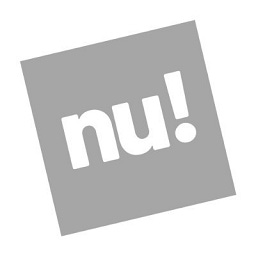☕ Dogs In AR Googles & Authoritarian Influencers - The Neal Ungerleider Newsletter
+ Bad idea reports + the end of open offices + more!
Lots of links today! Let’s dive in…
New Futures:
New survey by Jean M. Twenge and The Atlantic argues American teens are coping surprisingly well during the pandemic thanks to more time to sleep and spending more time w families.
The University of Miami allegedly used facial recognition software to identify and track students protesting the school’s COVID response. Targeted students were allegedly called into university offices and ordered to cease protesting. (Note: The University of Miami Police Department denies the use of facial recognition software).
JJ McNab of GWU’s Program on Extremism put together an extremely interesting Twitter primer on the Boogaloo movement.


One side effect of the COVID-era economy = Lenders and private equity firms stuck with restaurant chains they can’t sell like Ruby Tuesday and California Pizza Kitchen. (Note: Back in my journalist days, I wrote about CPK and their struggles in competing in a crowded industry. Operating chain restaurants stinks! Core customers don’t want you to change, but you can’t find new customers without changing. Profit margins suck, there’s too much competition, too many external factors, etc. Anyway I root for anyone trying to make their business profitable in 2020 and the food at the CPK test kitchen was excellent.)
ARK Invest’s new Bad Ideas Report looks at five industries they feel investors should avoid: Physical bank branches, brick and mortar retail, linear TV, freight rail and traditional transportation. Endless props to ARK on the report’s name, but not too sure about the conclusions—I’m not willing to write any of those off yet. However, the data points they use are extremely interesting. Still though; curbside pickup is thriving at brick-and-mortar stores because many customers just want an excuse to leave the house.


Salesforce just issued a new ebook, Customer Experience in the Next Normal: Lessons in Agility for Media Marketers. Yes, it’s sponcon and of course Salesforce is investing lots of $$ in the next normal but it’s still worth reading. Name of the game for the remainder of 2020 and 2021 for planning = doing marketing for customers online when you’d rather be doing marketing for them IRL.
Speaking of pandemic ripple effects, Dollar General is starting a new chain aimed at wealthier shoppers. Popshelf will be primarily woman-targeted and sell party supplies, home decor or beauty products at a mostly <$5 price point.
COVID-19’s transmission patterns mean that young people infect others. A 13-year-old girl with COVID traveled with her parents and siblings to an extended family gathering; although the girl’s symptoms never progressed past a stuffy nose, she infected 11 family members—2 of whom were hospitalized.
Fast Company’s Nate Berg argues that COVID will bring an end to open office plans. Pretty please, pretty pretty please can we make this a prophesy that comes true?
A new study at the University of Minnesota is examining how aerosols from singing and playing brass/woodwind influences transmit COVID.
The event planning industry is beginning to brainstorm safer food and drink service options for IRL events. One promising initial concept: A “quick service restaurant” operating model where party attendees order food/drinks via smartphone app and pick it up at the end of a line.
Forrester’s 2021 predictions list is out. Lots of digital transformation, lots of remote work.
Finally, an update to an earlier newsletter which pointed out the University of Illinois’ rapid COVID testing regime as an example of a way institutions could return to relative normalcy. Well… an investigation by reporter Willie Cui at student newspaper the Daily Illini found that university authorities were massively overstating their capacity to actually handle COVID tests. The University told students and parents their lab could handle 20,000 tests daily when the actual number was closer to 10,000(!).
Advertising/Marketing/PR:
Kraft Mac & Cheese and Mischief @ No Fixed Address thought they were being clever with a “Send Noods” campaign for macaroni and cheese which backfired with parents.
Kevin Smith fans rejoice: There will be a Mooby’s fast food pop-up in Chicago. Not in Jersey?
Loving the return of Bruce Willis as Die Hard’s John McClane in a new The Marketing Arm campaign for Advance Auto Parts.
RIP Tab, which Coca-Cola kept alive for years with near-zero marketing budget for an enthusiastic fan base… but which is sadly lost to COVIDnomics.
Furniture retailer West Elm is aggressively pursuing partnerships with direct-to-consumer brands.
Why authoritarian regimes are recruiting American Instagram influencers.
Cookies are on their way out for a whole bunch of complicated structural reasons I’m not getting into, but here’s a look at how adtech might work in a post-Cookie world.
Hooboy… this Davey Alba and Jack Nicas New York Times investigation into the growth of pay-for-play fake local news sites affiliated with right wing PACs is something. (See also Jessica Mahone and Philip Napoli’s recent Nieman Lab coverage too!)
Media:
Josh Sternberg looks at LinkedIn’s challenges with political trollposting.
How television shows are resuming production in the middle of COVID without incurring expensive liability lawsuits.
The sun rises every day and Sinclair’s local stations are still promoting conspiracy theories.
Well intentioned but not sure how this will play out IRL: Facebook launching in-app mental health portal.

(Image: Facebook)
New York Times media columnist Ben Smith’s interview with OneZero’s Alex Kantrowitz is such good inside baseball.
Speaking of inside baseball, this is a long Twitter thread by ex-FB security honcho Alex Stamos about his complaints with the Times’ coverage of disinformation on social media.
 @MikeIsaac @karaswisher @evelyndouek And this isn't a complaint about all of the press, but specifically the NY Times, which: 1) Is consistently inconsistent on what powers should be used by platform intermediaries 2) Stuck in narratives from 2016 that ignore it's[sic] own role in the disinformation ecosystem
@MikeIsaac @karaswisher @evelyndouek And this isn't a complaint about all of the press, but specifically the NY Times, which: 1) Is consistently inconsistent on what powers should be used by platform intermediaries 2) Stuck in narratives from 2016 that ignore it's[sic] own role in the disinformation ecosystemAntonio Garcia-Martinez dives into the economics of the New York Times, and especially the (not surprising!) fact that subscriptions to the Times’ Crossword and Cooking services subsidize news coverage to a substantial degree.
Study: Engagement with deceptive outlets higher on Facebook today than run-up to 2016 election.
Facebook allegedly artificially reduced traffic to Mother Jones and other left-leaning media outlets due to calculations that playing footsie with Republican politicians would be better for business.
And on the other end of the ideological spectrum, Facebook banned a right-wing troll farm which allegedly recruited Arizona teenagers to spam FB with pro-Trump and pro-hunting content.
Alan Moore finally gives an interview! Money quote: “When I entered the comics industry, the big attraction was that this was a medium that was vulgar, it had been created to entertain working class people, particularly children. The way that the industry has changed, it’s ‘graphic novels’ now, it’s entirely priced for an audience of middle class people.”
YouTube’s testing ecommerce tools for viewers to buy items inside of YouTube videos. No word yet on if this involves payment for creators or any affiliate marketing-y compensenation.
Digiday’s Kayleigh Barber uses the Fast Company Innovation Festival as an example of why publications are seeking smaller-budget sponsors for virtual events.
Amazing profile of ex-Bon Appetit Test Kitchen star Sohla El-Waylly in the Vulture with lots of gossip on Bon Appetit/Conde Nast behind the scenes.
Animal website The Dodo is debuting Dodo-branded pet insurance. Unorthodox marketing move but can totally see this working.
Bloomberg’s Lucas Shaw examines Disney’s confused Hulu strategy and how Hulu suddenly became institutionally neglected in the wake of Disney+’s success. They COULD fold Hulu into Disney+ but watching Always Sunny in Philadelphia or Handmaid’s Tale on Disney+, you know, just feels wrong.
Tech:
In a natural move, Zoom’s unveiling an app store and branded events.
LendingClub is discontinuing microinvestments in loans because TLDR is they make more money as an online bank than an investment platform.
The American army is, err, testing augmented reality googles for dogs.


Things I’ve Enjoyed Lately:
Thinking about convergent evolution and crustaceans.
Over on The Ringer, chef David Chang interviewing writer Gustavo Arellano officially about tortillas and unofficially about everything else.
That’s it for this issue. Email me here and please don’t hesitate to contact if I can be of assistance. Thank you for taking the time to read this damned thing.
PS: Donate to help the Belmont Snack Shop’s owners after a terrible fire and to laid off employees at Colectivo Coffee (and help the Colectivo unionization drive!)
Love and coffee,
Neal
About This Newsletter: My name is Neal Ungerleider, and I’m a strategic communications consultant who works with brands and agencies on marketing/advertising/PR projects. I worked as a journalist in a previous life and also write this weekly newsletter about media and industry news. Thanks for taking the time to read it. For more, here's my bio, my portfolio, and current projects.
Connect on Twitter or LinkedIn and learn more about my services at nealungerleider.com. Contact me by replying to this newsletter or emailing neal@nealungerleider.com.









